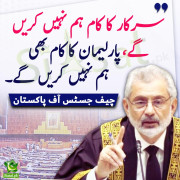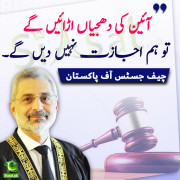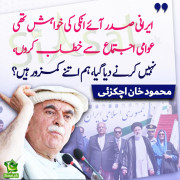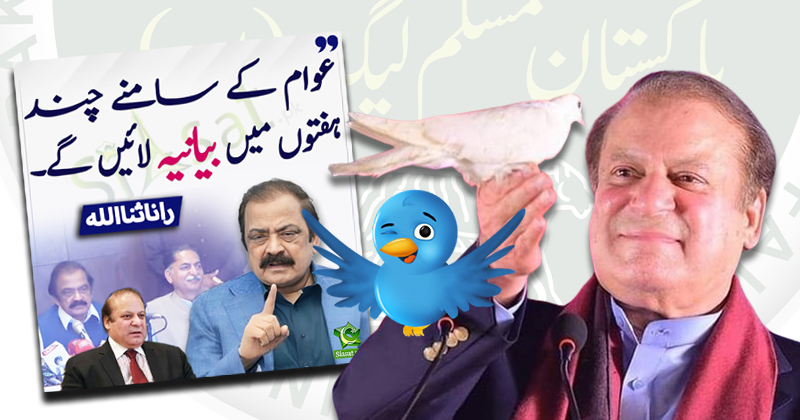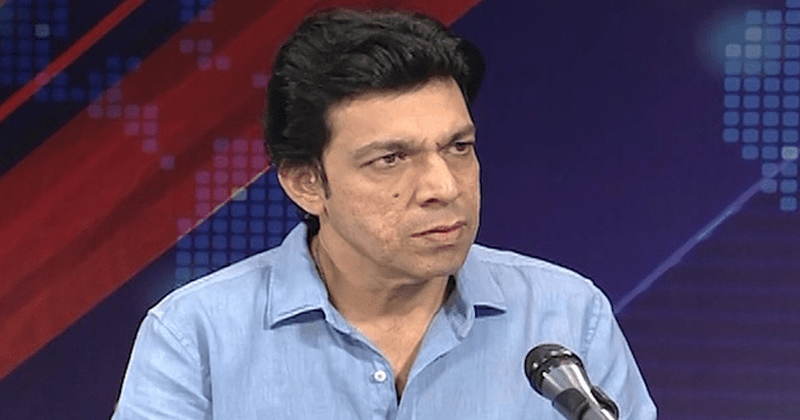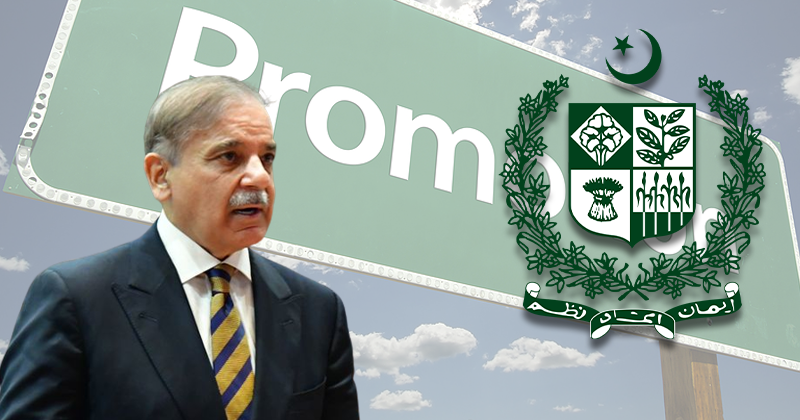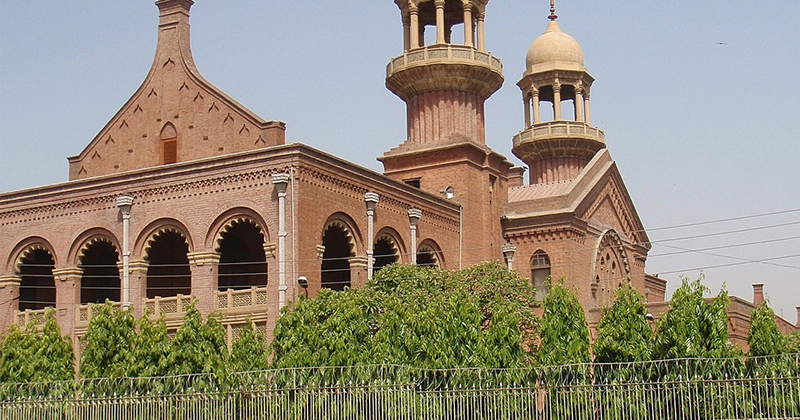You are using an out of date browser. It may not display this or other websites correctly.
You should upgrade or use an alternative browser.
You should upgrade or use an alternative browser.
Is The Quran Incomplete without Hadith?
- Thread starter Wake up Pak
- Start date
jani1
Chief Minister (5k+ posts)
گولہ باری رک گئی۔۔ اب میں بتاتا ہوں۔۔
جو کہتے ہیں کہ احادیث رسول اللہ ﷺ کی زندگی کے بعد لکھی گئیں۔
انہیں چاہیئے کہ ابو ہریرہ کی بائیوگرافی چیک کریں۔۔
وہ ان اصحاب میں سے تھے ۔۔ جو لکھنا جانتے تھے۔۔
اور وہ احادیث کو اس زمانے میں ہی لکھنا شرو ع کرچکے تھے۔۔
یہ صرف ایک صحابی کا حوالہ دیا ہے۔۔
جو کہتے ہیں کہ احادیث رسول اللہ ﷺ کی زندگی کے بعد لکھی گئیں۔
انہیں چاہیئے کہ ابو ہریرہ کی بائیوگرافی چیک کریں۔۔
وہ ان اصحاب میں سے تھے ۔۔ جو لکھنا جانتے تھے۔۔
اور وہ احادیث کو اس زمانے میں ہی لکھنا شرو ع کرچکے تھے۔۔
یہ صرف ایک صحابی کا حوالہ دیا ہے۔۔
Last edited:
Wake up Pak
Prime Minister (20k+ posts)
How can you say that?Problem is not much with sources of information but with objectivity of people who try to produce or interpret them. Real discussion should be about islam vs islam or mazhab vs islam. For better understanding of what knowledge is and where it comes from see HERE. For better understanding of deen of islam from the quran see HERE, HERE, HERE, HERE and HERE.
In my view even the quran only muslims are wrong because they believe islam to be a mazhab, which it is not. The whole terminology used by all sects is coined by those who have no real sense of purpose of existence in their sight.
Keep the trust
Minister (2k+ posts)
Pehla kalma hi iss baat ka saboot hai keh Allah kay saath Nabi ko mannana hi Muslim hona hai aur Nabi ka amal hadees mai hai.
Keep the trust
Minister (2k+ posts)
Those who wrote hadees are known as As-hab as-Suffah. Some of the famous Companions from this group include Abu Huraira, Jabir b. Abdullah, Mu'adh b. Jabal, Abdullah b. Mas'ud and others.گولہ باری رک گئی۔۔ اب میں بتاتا ہوں۔۔
جو کہتے ہیں کہ احادیث رسول اللہ ﷺ کی زندگی کے بعد لکھی گئیں۔
انہیں چاہیئے کہ ابو ہریرہ کی بائیوگرافی چیک کریں۔۔
وہ ان اصحاب میں سے تھے ۔۔ جو لکھنا جانتے تھے۔۔
اور وہ احادیث کو اس زمانے میں ہی لکھنا شرو ع کرچکے تھے۔۔
Keep the trust
Minister (2k+ posts)
Nabi ka koi beta nahi hai uss ka reason kia hai? Iss sawal ka jawab hi aap kay sawal ka jawab hai.Khatam Nabiyyin can have more than one interpretation

Prophethood (Ahmadiyya) - Wikipedia
en.m.wikipedia.org
How can you say that?
On basis of principles I have explained already in detail in my writings, dear wake up pak.
God has gifted human beings with ability to self program themselves ie they are able to figure out things all by themselves and that is why right from the day people are born they start doing that. This is called direct learning method or process. In this way people interact with things or experiment with them or experience them. All knowledge one has learned this way is one's personal knowledge and understanding of things.
However all is not within reach of everyone as individuals so whoever has any reach to anything shares his personal experience with others so we come to learn things from personal experiences of each other and this is indirect learning method. After we have gained basic skill and experience then we get into learning higher level of information and try to understand it. Again with help of each other. This is why we cannot cut out learning from humanity.
Whenever anyone learns anything one has to look at it objectively or purposefully otherwise nothing can make any sense at all. Random ideas or pieces of information remain meaningless till they are combined into a purposeful thing. This is what gives them a context. This is why revelation of God also needs to be understood the very same way ie on the basis of the very same principles or by using the very same methods of learning. See my post 111 HERE.
regards and all the best.
عؔلی خان
MPA (400+ posts)
Citizen X
President (40k+ posts)
This is going to be long so buckle down if you want to read it.
This is a story of a personal journey so take from it what you will. Like majority of people here and on this thread I was no different and my reactions and arguments were pretty much similar, because just like most I went through the same "system" as others have and my beliefs were the same also. If anybody wants to bother, he can search through my posting history and come across many similar debates I've had defending hadith etc etc.
I know its very easy to dismiss this because after all "we" can't all be wrong, right?
But then there is a thing called critical thinking. Knee jerk reaction is to dismiss it, but credit is given where credit is due. Wake up Pak, even after a lot of bashing as in this thread always stood firm on his stance nor shy away from proclaiming it whenever the opportunity arose.
So I dunno know after many a debate, I said let me look into this. My entire intention was to do more research and come up with better arguments to debunk this "theory" after all I had the collective wisdom of centuries and 1000s of scholars to back me up so this really wouldn't take long.
I also wanted to "win" because I was a great lover and follower of hadith. Many people say this but I had actually in the time before the internet actually went out and bought the entire collection of Sahih Bhukari and then read it cover to cover and loved it to no end. Then I bought many other hadith books but Sahih Bhukari was always my favorite and even today I probably remember most hadith off the top of my head than most "hadith lovers" here.
SO as I started to research this. I wanted to start with what actually is hadith and all these poo poo claims that hadith was complied centuries after the prophet blah blah. Meh! What nonsense these people are speaking, I'll get them, I'll get them good!
The earliest collection hadith I could find was Imam Maliks Al Muwatta. Imam Malik was a born, bred and died in Medina and his grand father was companion of Hazrat Umar and Uthman and he was known as the Imam of Medina but his book only contained 1900 hadith out of a 100,000 he had collected and only 600 of those marfu, a very high rejection rate and very low rate of hadith related directly to the prophet, and this became a common theme and even this collection was compiled after a century of the Prophets passing. Also not forgetting Imam Malik saying do not rely on hadith for your deen for it will snatch it out right from hand.
Another surprising discovery was which is very obvious but we all seem to skim over it. And really this started to tingle my "spidey senses" that something was not right in rome, was that one would think the people who had spent the most time with the Prophet and were most near and dear to him would have narrated the most amount of hadith and the people who had spent the least amount of time the least, obviously, right?
Wrong. It's totally the opposite. Hazrat Abu Bakr r.a was his best friend even before the first revelation, his most near and dear and later also his relative through marriage of his daughter. Who was with him till the last day. And he narrated less than 50 hadith and while Abu Huraira who stayed with the prophet in only the last 2 to 3 years nor was very close to the Prophet s.a.w has narrated 1000s of hadith. This got me thinking why is this so?
Also majority of the hadith in all collections today are what as know as Khabar-e-wahid, as in told to one person. Clearly if something was meant to be "law" a religious edict and as was the Prophets way and as he was commanded by Allah, he would announce it publicly and then command the public to spread the message far and wide not tell one person in privacy or small gathering. So why do we take them to be "law" for all humanity till the end of time????
I can go step by step on many such findings as they say. the more I looked into it, the rabbit hole got deeper and deeper. But that would take forever, so I'll skip to what I would call the final nail in the coffin is learning that the only original source of Imam Bhukari's Sahih we have is not his own work but a from a copy from one of his so called students. Mohammed Ibn Yusuf Al Farabri which no one from his own time could vouch from!
In hadith sciences laws made by muhadithseen themselves makes the narrator of the entire Sahih Bhukari majhul which in turn makes the entire Sahih Bhukari collection suspect, uncredible and unreliable,.
Overall something which has so much rejection rate and has some really weird and sometimes insulting things in it, credibility is a huge issue. How can we take something like that as "law", how can what we can call Islam today is 80% be based on this unreliable text?
And for the thinking mind, imagine we live in an age of digital records, audio, video, written records and paperwork. YET for example we don't know the exact details of the life of Mohd Ali Jinnah. And he lived in this era and it's not even been a 100 years since he has passed and there are still people alive today who have met and saw him and yet there is ambiguity and controversy in many of his issues. So how can we trust the narrations that are centuries old in a time where there was no real way of authenticating them.
Arabian peninsula culture was and even today is mostly a spoken culture. The first real book in Arabic is actually the Quran so how can we trust blindly 1000% something someone heard from someone, who heard from someone, who heard from someone going back generations to be totally accurate? And then make our most life defining and sometimes life and death decisions on those "sayings"
So going back to the original question, what is Hadith?
The Prophet s.a.w was a man of his people, from his people and hadith is nothing but what 1000s of people saw how he interacted with his friends, family, his people, his likes, dislikes and how during his life he reacted to different events and situations and what events took place.
I never say reject hadith, but understand what is hadith. Hadith is nothing but a biographical historical record of the Prophet as seen through the eyes of many people and much of early Islamic history is derived from it. But there is no hukum, edict, practice or jurisprudence in hadith. All of that already exists in the Quran and we don't need any supplementary guides for that. Specially ones that were written centuries later by men based on unreliable hearsay.
And then of course the age old question will be repeated ok then if not for hadith, then tell us how are we suppose to pray, because the Quran doesn't teach us how to pray etc etc?
Very easy to answer that, find me one, just one, out of the almost 2 billion Muslims who has learnt how to pray step by step all five times, just by reading the hadith with no outside help and be kind enough to quote those hadith as well. Thanks.
Now I know all sorts of labels of kaffir and mukiray flan dmkan will be throw at me, because that is the default knee jerk reaction but as Imran Khan says. I don't mind and they don't matter.
I know more than anyone else here how difficult all of this is, because I've gone through this, its like shaking the very core of your beliefs, it's not easy to accept that what you have been led to believe from childhood to now could not be true. Same thing the Kuffar said when the Prophet s.a.w brought Islam. That should we abandon the religion of our fathers and forefathers and accept what you bring to us.
Since this is a political forum let me give you a political analogy. Nawaz Sharif supporters have literally invested all their lives behind Nawaz Sharif. And now all of a sudden they are being told that the leader you have loved and cherished for almost the last 40 years, is a thief, corrupt and in all sense of the word an enemy of Pakistan.
But after so much proof, convictions, hard core Nawaz Sharif supporters still won't accept the reality and have excuses and narratives to set aside all his corruption and convictions. Because it's easier to believe that, than to believe that they have made a fool all these years. This hurts a persons pride, ego and intelligence. So its just easier to justify or dismiss all his crimes and keep supporting him.
It's the same situation with hadith.
AND finally if you have made it this far. Thank You.
This is a story of a personal journey so take from it what you will. Like majority of people here and on this thread I was no different and my reactions and arguments were pretty much similar, because just like most I went through the same "system" as others have and my beliefs were the same also. If anybody wants to bother, he can search through my posting history and come across many similar debates I've had defending hadith etc etc.
I know its very easy to dismiss this because after all "we" can't all be wrong, right?
But then there is a thing called critical thinking. Knee jerk reaction is to dismiss it, but credit is given where credit is due. Wake up Pak, even after a lot of bashing as in this thread always stood firm on his stance nor shy away from proclaiming it whenever the opportunity arose.
So I dunno know after many a debate, I said let me look into this. My entire intention was to do more research and come up with better arguments to debunk this "theory" after all I had the collective wisdom of centuries and 1000s of scholars to back me up so this really wouldn't take long.
I also wanted to "win" because I was a great lover and follower of hadith. Many people say this but I had actually in the time before the internet actually went out and bought the entire collection of Sahih Bhukari and then read it cover to cover and loved it to no end. Then I bought many other hadith books but Sahih Bhukari was always my favorite and even today I probably remember most hadith off the top of my head than most "hadith lovers" here.
SO as I started to research this. I wanted to start with what actually is hadith and all these poo poo claims that hadith was complied centuries after the prophet blah blah. Meh! What nonsense these people are speaking, I'll get them, I'll get them good!
The earliest collection hadith I could find was Imam Maliks Al Muwatta. Imam Malik was a born, bred and died in Medina and his grand father was companion of Hazrat Umar and Uthman and he was known as the Imam of Medina but his book only contained 1900 hadith out of a 100,000 he had collected and only 600 of those marfu, a very high rejection rate and very low rate of hadith related directly to the prophet, and this became a common theme and even this collection was compiled after a century of the Prophets passing. Also not forgetting Imam Malik saying do not rely on hadith for your deen for it will snatch it out right from hand.
Another surprising discovery was which is very obvious but we all seem to skim over it. And really this started to tingle my "spidey senses" that something was not right in rome, was that one would think the people who had spent the most time with the Prophet and were most near and dear to him would have narrated the most amount of hadith and the people who had spent the least amount of time the least, obviously, right?
Wrong. It's totally the opposite. Hazrat Abu Bakr r.a was his best friend even before the first revelation, his most near and dear and later also his relative through marriage of his daughter. Who was with him till the last day. And he narrated less than 50 hadith and while Abu Huraira who stayed with the prophet in only the last 2 to 3 years nor was very close to the Prophet s.a.w has narrated 1000s of hadith. This got me thinking why is this so?
Also majority of the hadith in all collections today are what as know as Khabar-e-wahid, as in told to one person. Clearly if something was meant to be "law" a religious edict and as was the Prophets way and as he was commanded by Allah, he would announce it publicly and then command the public to spread the message far and wide not tell one person in privacy or small gathering. So why do we take them to be "law" for all humanity till the end of time????
I can go step by step on many such findings as they say. the more I looked into it, the rabbit hole got deeper and deeper. But that would take forever, so I'll skip to what I would call the final nail in the coffin is learning that the only original source of Imam Bhukari's Sahih we have is not his own work but a from a copy from one of his so called students. Mohammed Ibn Yusuf Al Farabri which no one from his own time could vouch from!
In hadith sciences laws made by muhadithseen themselves makes the narrator of the entire Sahih Bhukari majhul which in turn makes the entire Sahih Bhukari collection suspect, uncredible and unreliable,.
Overall something which has so much rejection rate and has some really weird and sometimes insulting things in it, credibility is a huge issue. How can we take something like that as "law", how can what we can call Islam today is 80% be based on this unreliable text?
And for the thinking mind, imagine we live in an age of digital records, audio, video, written records and paperwork. YET for example we don't know the exact details of the life of Mohd Ali Jinnah. And he lived in this era and it's not even been a 100 years since he has passed and there are still people alive today who have met and saw him and yet there is ambiguity and controversy in many of his issues. So how can we trust the narrations that are centuries old in a time where there was no real way of authenticating them.
Arabian peninsula culture was and even today is mostly a spoken culture. The first real book in Arabic is actually the Quran so how can we trust blindly 1000% something someone heard from someone, who heard from someone, who heard from someone going back generations to be totally accurate? And then make our most life defining and sometimes life and death decisions on those "sayings"
So going back to the original question, what is Hadith?
The Prophet s.a.w was a man of his people, from his people and hadith is nothing but what 1000s of people saw how he interacted with his friends, family, his people, his likes, dislikes and how during his life he reacted to different events and situations and what events took place.
I never say reject hadith, but understand what is hadith. Hadith is nothing but a biographical historical record of the Prophet as seen through the eyes of many people and much of early Islamic history is derived from it. But there is no hukum, edict, practice or jurisprudence in hadith. All of that already exists in the Quran and we don't need any supplementary guides for that. Specially ones that were written centuries later by men based on unreliable hearsay.
And then of course the age old question will be repeated ok then if not for hadith, then tell us how are we suppose to pray, because the Quran doesn't teach us how to pray etc etc?
Very easy to answer that, find me one, just one, out of the almost 2 billion Muslims who has learnt how to pray step by step all five times, just by reading the hadith with no outside help and be kind enough to quote those hadith as well. Thanks.
Now I know all sorts of labels of kaffir and mukiray flan dmkan will be throw at me, because that is the default knee jerk reaction but as Imran Khan says. I don't mind and they don't matter.
I know more than anyone else here how difficult all of this is, because I've gone through this, its like shaking the very core of your beliefs, it's not easy to accept that what you have been led to believe from childhood to now could not be true. Same thing the Kuffar said when the Prophet s.a.w brought Islam. That should we abandon the religion of our fathers and forefathers and accept what you bring to us.
Since this is a political forum let me give you a political analogy. Nawaz Sharif supporters have literally invested all their lives behind Nawaz Sharif. And now all of a sudden they are being told that the leader you have loved and cherished for almost the last 40 years, is a thief, corrupt and in all sense of the word an enemy of Pakistan.
But after so much proof, convictions, hard core Nawaz Sharif supporters still won't accept the reality and have excuses and narratives to set aside all his corruption and convictions. Because it's easier to believe that, than to believe that they have made a fool all these years. This hurts a persons pride, ego and intelligence. So its just easier to justify or dismiss all his crimes and keep supporting him.
It's the same situation with hadith.
AND finally if you have made it this far. Thank You.
عؔلی خان
MPA (400+ posts)
This is going to be long so buckle down if you want to read it.
This is a story of a personal journey so take from it what you will. Like majority of people here and on this thread I was no different and my reactions and arguments were pretty much similar, because just like most I went through the same "system" as others have and my beliefs were the same also. If anybody wants to bother, he can search through my posting history and come across many similar debates I've had defending hadith etc etc.
I know its very easy to dismiss this because after all "we" can't all be wrong, right?
But then there is a thing called critical thinking. Knee jerk reaction is to dismiss it, but credit is given where credit is due. Wake up Pak, even after a lot of bashing as in this thread always stood firm on his stance nor shy away from proclaiming it whenever the opportunity arose.
So I dunno know after many a debate, I said let me look into this. My entire intention was to do more research and come up with better arguments to debunk this "theory" after all I had the collective wisdom of centuries and 1000s of scholars to back me up so this really wouldn't take long.
I also wanted to "win" because I was a great lover and follower of hadith. Many people say this but I had actually in the time before the internet actually went out and bought the entire collection of Sahih Bhukari and then read it cover to cover and loved it to no end. Then I bought many other hadith books but Sahih Bhukari was always my favorite and even today I probably remember most hadith off the top of my head than most "hadith lovers" here.
SO as I started to research this. I wanted to start with what actually is hadith and all these poo poo claims that hadith was complied centuries after the prophet blah blah. Meh! What nonsense these people are speaking, I'll get them, I'll get them good!
The earliest collection hadith I could find was Imam Maliks Al Muwatta. Imam Malik was a born, bred and died in Medina and his grand father was companion of Hazrat Umar and Uthman and he was known as the Imam of Medina but his book only contained 1900 hadith out of a 100,000 he had collected and only 600 of those marfu, a very high rejection rate and very low rate of hadith related directly to the prophet, and this became a common theme and even this collection was compiled after a century of the Prophets passing. Also not forgetting Imam Malik saying do not rely on hadith for your deen for it will snatch it out right from hand.
Another surprising discovery was which is very obvious but we all seem to skim over it. And really this started to tingle my "spidey senses" that something was not right in rome, was that one would think the people who had spent the most time with the Prophet and were most near and dear to him would have narrated the most amount of hadith and the people who had spent the least amount of time the least, obviously, right?
Wrong. It's totally the opposite. Hazrat Abu Bakr r.a was his best friend even before the first revelation, his most near and dear and later also his relative through marriage of his daughter. Who was with him till the last day. And he narrated less than 50 hadith and while Abu Huraira who stayed with the prophet in only the last 2 to 3 years nor was very close to the Prophet s.a.w has narrated 1000s of hadith. This got me thinking why is this so?
Also majority of the hadith in all collections today are what as know as Khabar-e-wahid, as in told to one person. Clearly if something was meant to be "law" a religious edict and as was the Prophets way and as he was commanded by Allah, he would announce it publicly and then command the public to spread the message far and wide not tell one person in privacy or small gathering. So why do we take them to be "law" for all humanity till the end of time????
I can go step by step on many such findings as they say. the more I looked into it, the rabbit hole got deeper and deeper. But that would take forever, so I'll skip to what I would call the final nail in the coffin is learning that the only original source of Imam Bhukari's Sahih we have is not his own work but a from a copy from one of his so called students. Mohammed Ibn Yusuf Al Farabri which no one from his own time could vouch from!
In hadith sciences laws made by muhadithseen themselves makes the narrator of the entire Sahih Bhukari majhul which in turn makes the entire Sahih Bhukari collection suspect, uncredible and unreliable,.
Overall something which has so much rejection rate and has some really weird and sometimes insulting things in it, credibility is a huge issue. How can we take something like that as "law", how can what we can call Islam today is 80% be based on this unreliable text?
And for the thinking mind, imagine we live in an age of digital records, audio, video, written records and paperwork. YET for example we don't know the exact details of the life of Mohd Ali Jinnah. And he lived in this era and it's not even been a 100 years since he has passed and there are still people alive today who have met and saw him and yet there is ambiguity and controversy in many of his issues. So how can we trust the narrations that are centuries old in a time where there was no real way of authenticating them.
Arabian peninsula culture was and even today is mostly a spoken culture. The first real book in Arabic is actually the Quran so how can we trust blindly 1000% something someone heard from someone, who heard from someone, who heard from someone going back generations to be totally accurate? And then make our most life defining and sometimes life and death decisions on those "sayings"
So going back to the original question, what is Hadith?
The Prophet s.a.w was a man of his people, from his people and hadith is nothing but what 1000s of people saw how he interacted with his friends, family, his people, his likes, dislikes and how during his life he reacted to different events and situations and what events took place.
I never say reject hadith, but understand what is hadith. Hadith is nothing but a biographical historical record of the Prophet as seen through the eyes of many people and much of early Islamic history is derived from it. But there is no hukum, edict, practice or jurisprudence in hadith. All of that already exists in the Quran and we don't need any supplementary guides for that. Specially ones that were written centuries later by men based on unreliable hearsay.
And then of course the age old question will be repeated ok then if not for hadith, then tell us how are we suppose to pray, because the Quran doesn't teach us how to pray etc etc?
Very easy to answer that, find me one, just one, out of the almost 2 billion Muslims who has learnt how to pray step by step all five times, just by reading the hadith with no outside help and be kind enough to quote those hadith as well. Thanks.
Now I know all sorts of labels of kaffir and mukiray flan dmkan will be throw at me, because that is the default knee jerk reaction but as Imran Khan says. I don't mind and they don't matter.
I know more than anyone else here how difficult all of this is, because I've gone through this, its like shaking the very core of your beliefs, it's not easy to accept that what you have been led to believe from childhood to now could not be true. Same thing the Kuffar said when the Prophet s.a.w brought Islam. That should we abandon the religion of our fathers and forefathers and accept what you bring to us.
Since this is a political forum let me give you a political analogy. Nawaz Sharif supporters have literally invested all their lives behind Nawaz Sharif. And now all of a sudden they are being told that the leader you have loved and cherished for almost the last 40 years, is a thief, corrupt and in all sense of the word an enemy of Pakistan.
But after so much proof, convictions, hard core Nawaz Sharif supporters still won't accept the reality and have excuses and narratives to set aside all his corruption and convictions. Because it's easier to believe that, than to believe that they have made a fool all these years. This hurts a persons pride, ego and intelligence. So its just easier to justify or dismiss all his crimes and keep supporting him.
It's the same situation with hadith.
AND finally if you have made it this far. Thank You.
Well done dear citizen x. Hopefully you will continue your study till you have reached the truth.
regards and all the best.
jani1
Chief Minister (5k+ posts)
How can you say that?
This is going to be long so buckle down if you want to read it.
AND finally if you have made it this far. Thank You.
azeezam ali khan sb, asal baat deen vs mazhab hai.
regards and all the best.
Citizen X
President (40k+ posts)
This is the best definition of hadith and basically what I have mentioned also. That hadith is a great semi autobiographical historical record of the times and life of the Prophet s.a.w but there is no deen in it. That is only found in the Quran and the living sunnah.Is it compulsory to believe in Hadith? (Javed Ahmad Ghamidi)
And also incase someone missed it, the answer to the question in the title is no.
Last edited:


